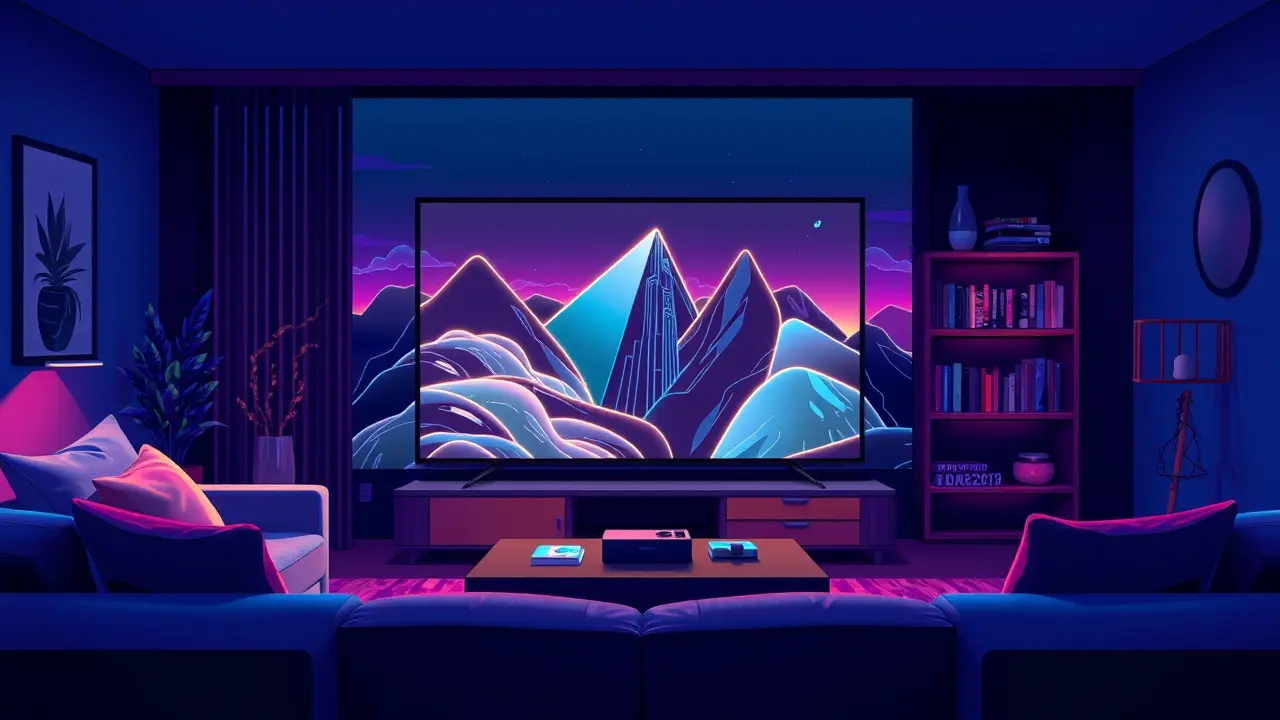
AInlp & speechSpeech Synthesis
Google Integrates Gemini AI into Google TV Streamer
SO
Sophia King
4 hours ago7 min read
The living room, that sacred canvas of daily life, is getting its most intelligent curator yet. Google is weaving its Gemini AI directly into the fabric of its Google TV streamer, a move that feels less like a simple software update and more like a fundamental shift in how we interact with the stories that illuminate our walls.This isn't just about replacing clunky, keyword-laden commands with natural conversation; it’s about transforming the remote from a utilitarian tool into a collaborative partner. Imagine the scene: instead of fumbling through menus or trying to remember the exact title of that film you half-recall, you can simply lean back and ask, 'Find me that sci-fi movie with the architect who designs dreams, you know, the one with the haunting score?' Gemini, understanding the layered intent behind your request—the genre, the profession, the emotional texture of the soundtrack—would pull up 'Inception' not as a data point, but as the precise narrative artifact you were seeking.This is the promise of a truly integrated AI, one that moves beyond transactional searches and into the realm of associative, almost intuitive, discovery. It’s the difference between a library catalog and a deeply knowledgeable friend who knows your taste.For creatives and designers, this evolution is particularly resonant. We’ve spent years championing user experience, smoothing out friction points in digital interfaces.Now, the interface is becoming the conversation itself. The design challenge shifts from optimizing button placement to crafting a personality for the AI—a tone of voice that is helpful but not intrusive, clever but not smug.This is the next layer of UX, where the aesthetic isn't just visual but conversational. The broader context here is the great platform war being waged in our homes.Amazon has Alexa deeply embedded in its Fire TV ecosystem, and Roku has been building out its own voice capabilities. Google’s integration of its most advanced AI model is a decisive counter-punch, an attempt to leapfrog the competition by making the entire entertainment discovery process feel seamless and, dare we say, enjoyable.It’s a strategic gambit to make the Google TV platform the most intelligent and user-friendly hub, thereby locking in user loyalty and gathering ever more nuanced data on viewing habits. What are the possible consequences? On one hand, we get a more personalized, efficient, and even serendipitous media diet.On the other, we cede another layer of our private moments—our lazy Sunday afternoons, our late-night movie binges, our family debates over what to watch—to the algorithmic gaze of a tech giant. The ethical design question becomes paramount: how do we build these AI companions to be assistants that empower our choices, rather than gatekeepers that subtly shape them? From a creative perspective, this could also influence content creation itself.If AI becomes the primary conduit for discovery, will filmmakers and showrunners start optimizing their titles, loglines, and even narrative structures to be more easily parsed and recommended by these systems? It’s a fascinating, if slightly unsettling, prospect. Ultimately, Google’s move is a bold stroke on the canvas of our digital lives, painting a future where our technology doesn’t just respond to our commands, but understands our context. The success of this vision won't be measured in teraflops or model parameters, but in whether it makes the simple act of finding something to watch feel less like a chore and more like the first step of a wonderful journey.
#Google
#Gemini
#Google TV
#voice assistant
#AI integration
#streaming
#natural language processing
#featured
Stay Informed. Act Smarter.
Get weekly highlights, major headlines, and expert insights — then put your knowledge to work in our live prediction markets.
© 2025 Outpoll Service LTD. All rights reserved.